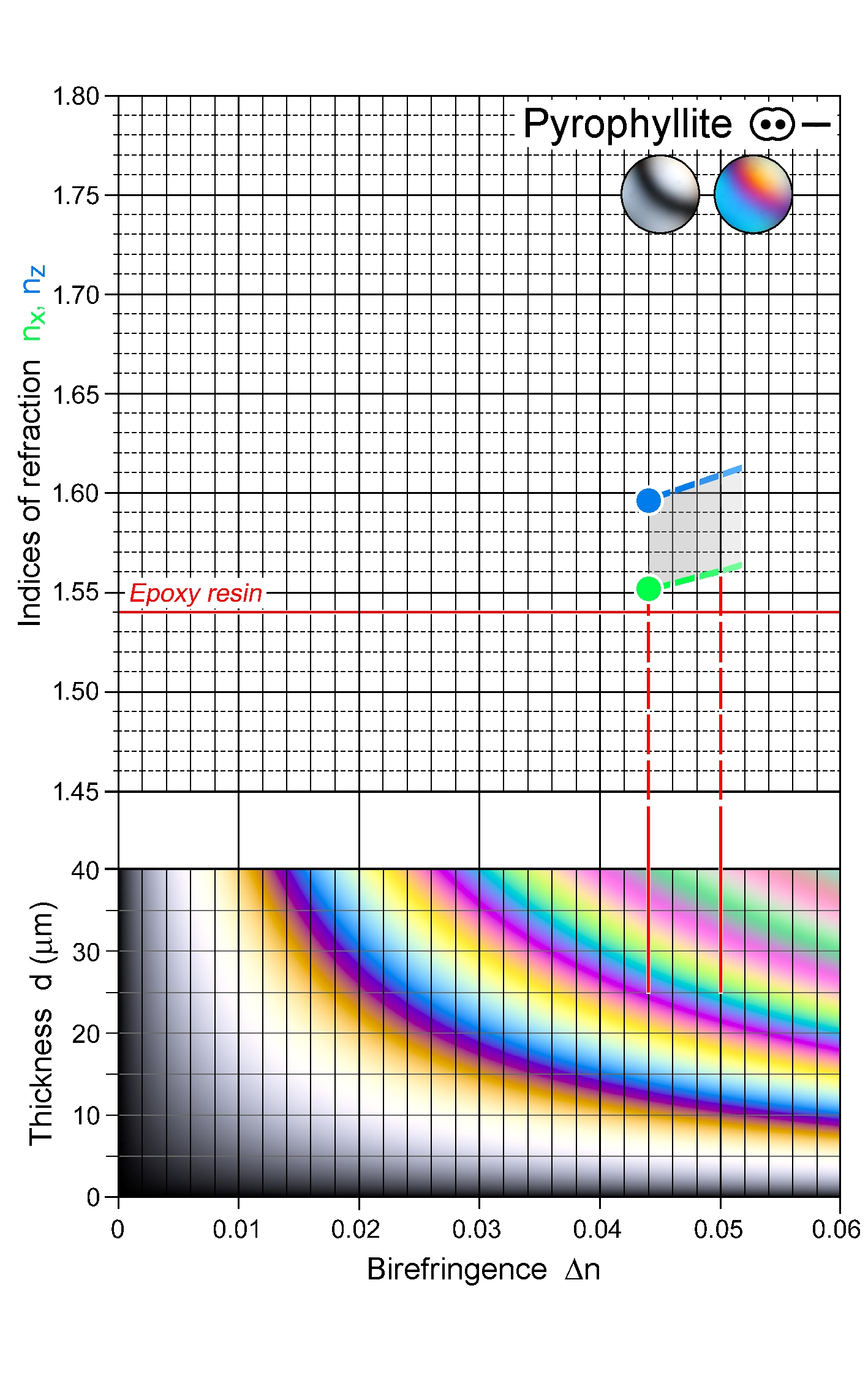|
| Formula | Al2Si4O10(OH)2 |
| | Optic class & sign | Biaxial negative |
| | Optical orientation | X near c, Y ~ a, Z = b |
| | Optical plane | Orthogonal to (010), close to (100) |
| | Relief | Low- to moderate-positive |
| | Refractive indices | nx = 1.552 -1.556
|
|
ny = 1.586 -1.589
|
|
nz = 1.596 -1.601
|
|
| |
| | Birefringence (max.) | 0.044 - 0.062 |
| | | |
| | Optic Angle
| 2Vx
= 53 - 62° |
| | 2Vz
|
| | Sign of elongation | Length-slow, l (+) |
| | Interference figure | Acute bisectrix figures with multiple isochromes in sections ⊥ c (if large enough grains are available) |
| | Colour / pleochroism | Colourless |
| | Zoning | |
|
|
| Form | Habit | Platy, flaky; radiating or massive aggregates |
| | | Surface | Subhedral, anhedral |
| | Cleavage | {001} perfect |
| | Twinning | Not observed |
| | Extinction | Essentially straight |
|
|
| Reaction textures | |
| | Alteration / decomposition | Relatively stable under surface conditions |
|
|
| Occurence | Ign | |
| | | Met | Highly aluminous metapelites under greenschist-facies conditions |
| | | Sed | |
| | | Hyd | In situ hydrothermal alteration of Al-silicates, or in crosscutting veins; hydrothermal alteration of silicic volcanic rocks |
| | | Other | |
|
|
| Distinctive properties | Habit, single perfect cleavage, high Δn and lack of colour, occurrence; “bird’s-eye-maple” structure (a property shared with other sheet silicates).
Other colourless sheet silicates may be hard to distinguish optically from pyrophyllite. |
| | Additional comments | Occurs also with triclinic symmetry |
|
|

 Images
Images 


 Images
Images 
